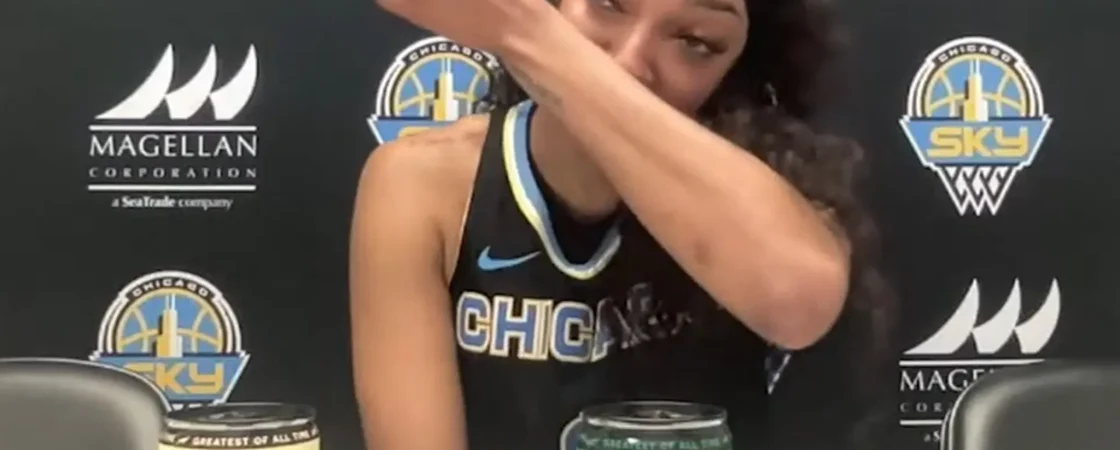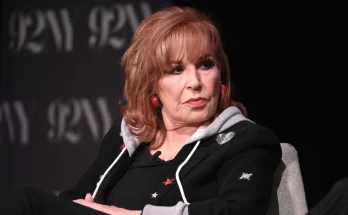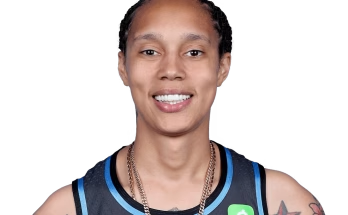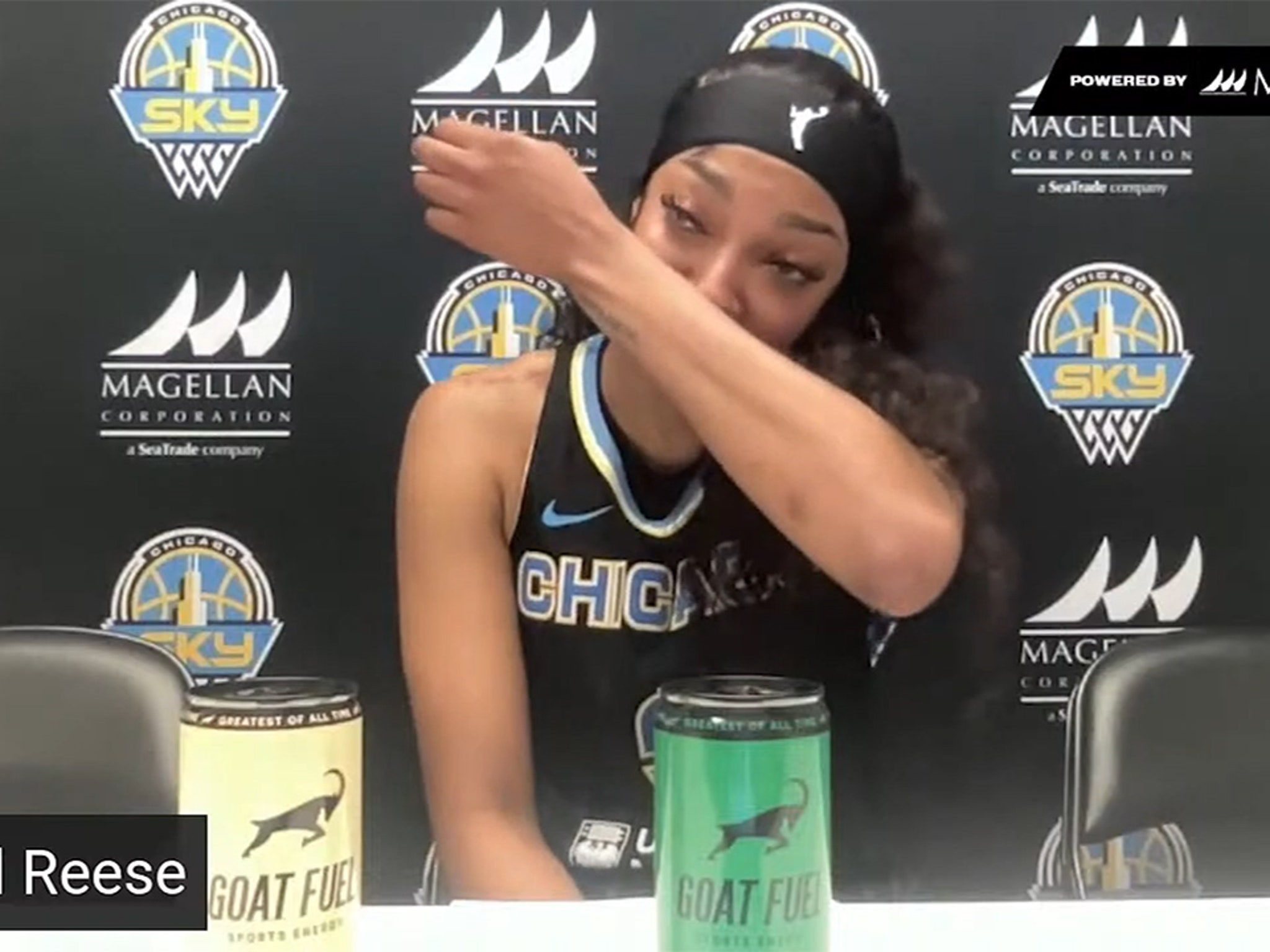
“They Don’t Respect Me Just Because I’m Black”: The Night Angel Reese Broke – And The WNBA’s Deafening Silence
The fluorescent lights in the hallway hummed with an indifferent chill as Angel Reese sat alone, elbows resting on her knees, her gaze locked on a battered white index card she’d been nervously folding and unfolding for minutes. The card, handed to her by a staffer as a “light” prep question before her postgame interview, felt heavier than any championship trophy. “Do you feel supported by the league?” it read. Angel didn’t need to flip it over again—she already knew the answer, and the weight of that knowledge pressed down on her shoulders like the cold, sterile air that surrounded her. In the adjacent press room, the usual bustle of camera crews, producers, and league representatives filled the space with a muted energy, but where Angel sat, there was only silence—a silence that seemed to echo the growing sense of isolation she had felt since her rookie season began.

For much of her life, Angel Reese believed that strength was measured by silence, by keeping her head down and letting her performance speak for itself. She had learned to grind through adversity, to let her stats answer the doubters, but no number on a scoreboard could quiet the constant background hum of criticism. The applause that greeted her on draft night had faded, replaced by a chorus of voices that rarely mentioned her game but always found fault with her demeanor. She was told she smiled too little, celebrated too loudly, didn’t “carry herself like a professional.” Every week, the spotlight grew more intense, not because of its brightness, but because of its icy scrutiny. The pressure was familiar; the feeling of being dissected by the very league that once cheered her was not.
The postgame interview was supposed to be routine, a standard three-question affair, but on this night, something shifted. When a young reporter asked what it was like adjusting to the league’s expectations, Angel paused. The question wasn’t hostile, but it landed with a weight she hadn’t anticipated. Perhaps it was the sting of being called “a liability” by a courtside commentator just minutes earlier, or the cold shoulder from a teammate in the locker room, or maybe it was the exhaustion from reading yet another wave of anonymous online comments dismissing her as “overrated” despite her impressive stats. Her hands trembled as she answered, “I’m constantly being judged, nitpicked, and questioned… I’m human. I’m trying to be strong. But this… this is breaking me.” Then, almost as if the words escaped on their own, she added quietly, “They don’t respect me… just because I’m Black.” The room froze. No one moved, no one spoke—the rawness of her admission hung in the air, shattering the carefully constructed veneer of professionalism that usually governed such moments.
Within half an hour, the unedited clip was everywhere on social media. The footage, stripped of music or graphics, showed only Angel Reese, vulnerable and unguarded, uttering five words that would ignite a firestorm across the sports world. Support poured in from fans who saw themselves in her struggle, who cheered, “She said it. Finally,” and “You’re not alone, Angel.” But just as quickly came the backlash, with critics accusing her of “playing the race card” and telling her to “focus on her shooting percentage.” A former analyst went live on Instagram, insisting that “everything can’t be about race,” and his comments sparked yet another round of heated debate online.
The WNBA, for its part, responded with a silence that was as calculated as it was conspicuous. There was no official statement, no tweet of support, not even a retweet of Angel’s original interview. Meanwhile, Caitlin Clark, another rising star, trended on social media—not for what she said, but for what she didn’t say. When asked about Angel’s comments, Clark offered a neutral, almost clinical response: “Mental health matters. I want everyone in the league to feel supported. That’s what’s important.” Some praised her professionalism, while others criticized her for not mentioning Angel by name, reading her distance as a sign of the league’s broader discomfort with the issue.
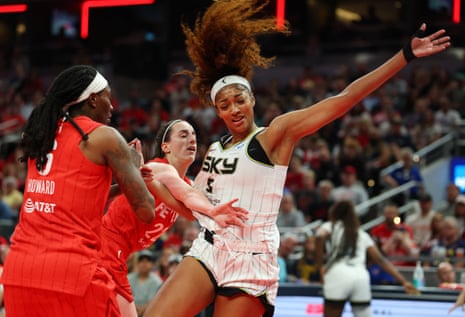
Behind closed doors, league executives scrambled to manage the fallout. Angel’s agent fielded a barrage of media requests, while marketing directors and communications strategists debated whether to protect her or distance the league from her remarks. “Is she going to apologize?” one executive asked. “No,” her agent replied. “She meant every word.” The indecision was palpable, and Angel would later reflect that the league’s silence was the most honest response of all—it said everything about who was truly supported and who was left to navigate the storm alone.
Angel Reese’s words were not new; they were simply undeniable. For years, confident Black women in sports have been told to shrink themselves to fit the frame, to smile wider, celebrate softer, and never make anyone uncomfortable. Angel refused to shrink, refused to soften, and in doing so, made people nervous in ways that no stat line ever could. That night, in her dark hotel room, the white index card still sat on her nightstand. She picked up a pen and wrote a single word beneath the question: “No.” Then she folded the card and slipped it into her duffel bag—not as a memento of pain, but as a marker of the moment she stopped pretending.
The morning after, the WNBA’s social media team met early, watching as #AngelReese, #TheyDontRespectMe, and #MentalHealthMatters trended across platforms. Engagement was up 400%, and Angel’s raw confession had amassed over ten million views overnight. Yet, as team members debated whether to issue a statement or wait and see, the decision was made to “monitor” the situation. No post, no response—just silence. Angel noticed. She didn’t expect a tribute, but she understood what silence meant in this industry. She had seen it before.

In the days that followed, something remarkable happened. Players from other teams began posting black-and-white selfies without captions; some reposted Angel’s quote. A veteran guard wrote, “Every time we speak up, they ask us to calm down. But silence isn’t peace. It’s pressure.” The league never acknowledged these acts of solidarity, but fans did, sharing them by the millions. The message had already escaped the filter.
Angel returned to practice the next day, her expression unreadable, her focus unbroken. When asked about the surge in followers and engagement, she simply replied, “I’m not here for clicks,” before lacing up her sneakers and hitting the court. Somewhere in her duffel bag, tucked between tape and towels, the creased white index card remained—unreadable to anyone but her, a quiet testament to the strength that comes not from shouting, but from refusing to disappear.
Because, in the end, that’s what people often forget about real strength: it doesn’t always roar. Sometimes, it simply endures—quietly, unapologetically, and unmovable. Not because it is welcomed, but because it refuses to leave.
Disclaimer: This narrative is a work of interpretive storytelling, shaped by public events, observed dynamics, and recurring themes in sports, culture, and media. It is intended to evoke emotional clarity and provoke thoughtful engagement, not to serve as a direct transcript or official record.
